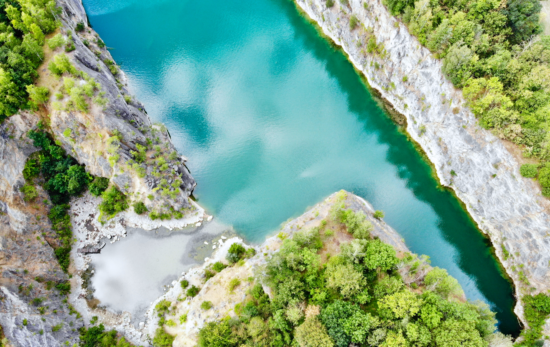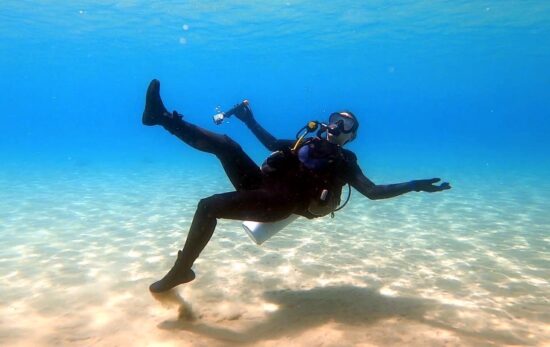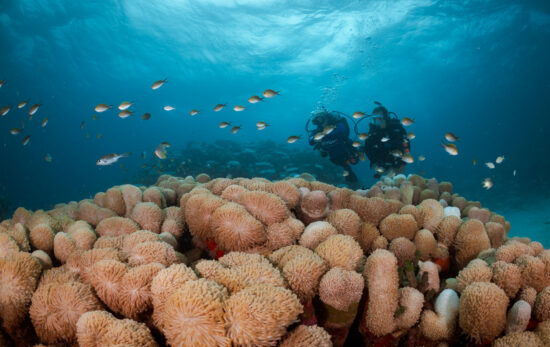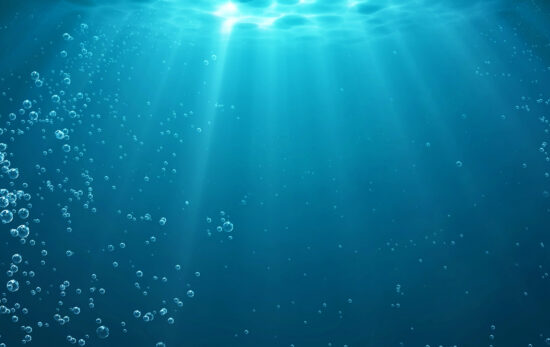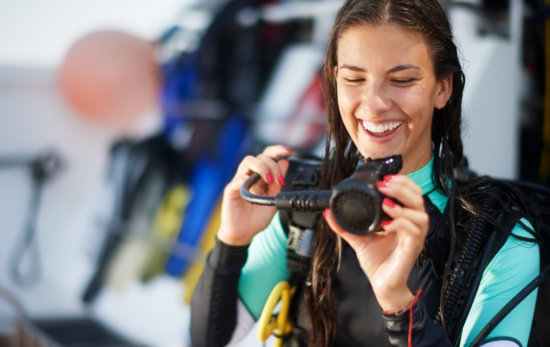Shark attacks? The deep abyss? The unknown or the general thought of being underwater might bring fear to many non-divers. But for scuba divers, what they are really afraid of is much different. After polling our social media audience and discussing scuba diving fears with certified divers near and far, what scares divers most stems from a more practical side of the sport.
Faulty equipment, running out of air and decompression sickness, or getting the bends, ranked amongst the majority of responses from seasoned scuba divers.
Let’s break down these scuba diving fears and find out what you can do to avoid such situations.
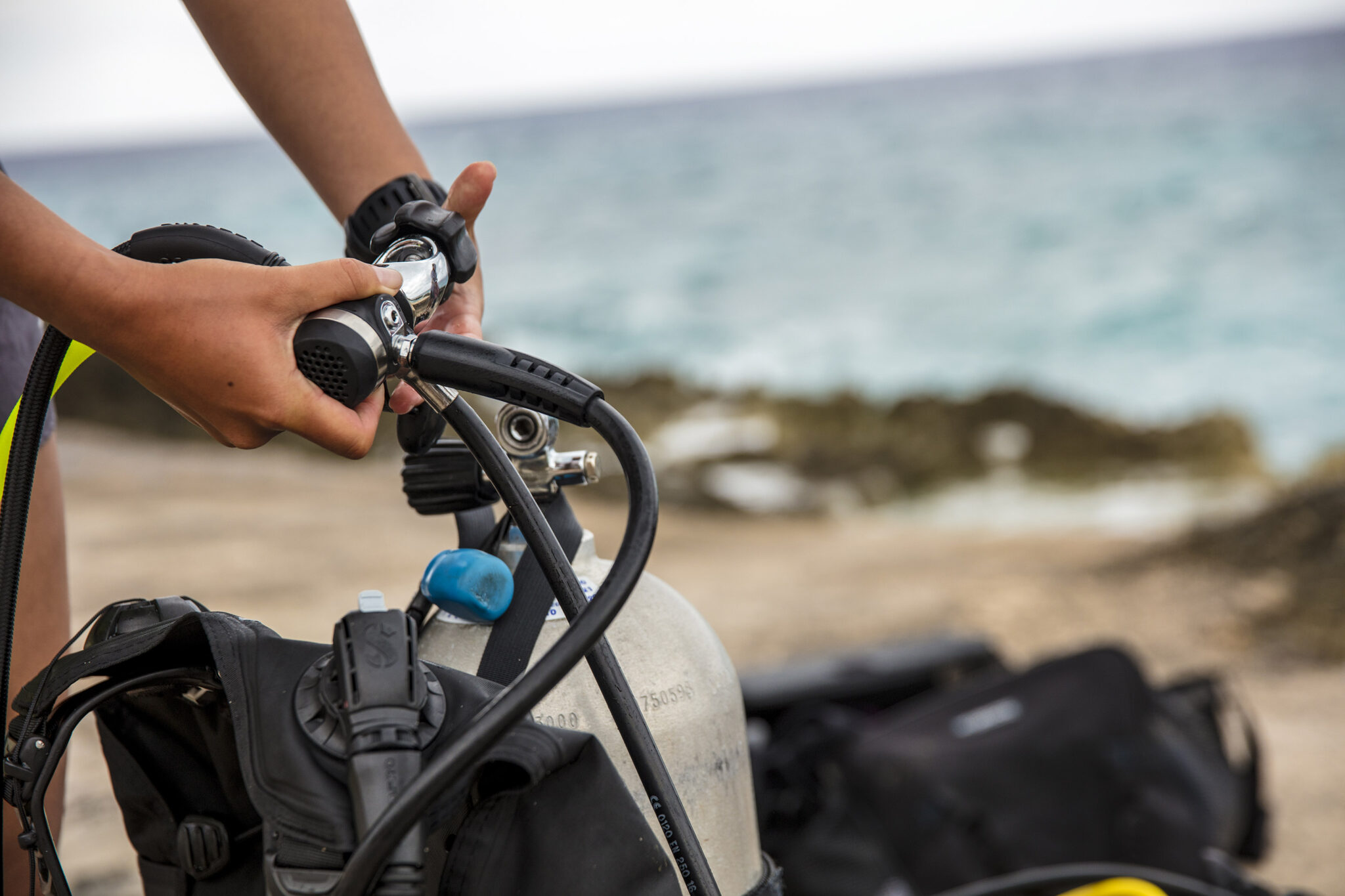
Scuba Diving Fear #1: Faulty Equipment
The best way to avoid gear failure is to properly clean and maintain your scuba diving equipment before and after diving. Most often, what someone calls an equipment failure is more likely a maintenance failure. Scuba equipment failing due to design flaws or manufacturer default is extremely rare. That’s because scuba diving manufacturers rigorously test equipment and have very precise manufacturing protocols.
The most important thing you can do is regularly inspect your gear and have it serviced as recommended by the gear manufacturer. It is vital to always complete your pre-dive safety checks, which include inspecting and testing your gear and your dive buddy’s gear. If you notice something doesn’t look or sound right, or your regulator is making a funny noise, for example, don’t assume the issue will resolve underwater. Always say something. If you are on a guided trip or a dive boat, speak with the dive guides on board to see if they can help assess the issue or if there is rental gear available that you can use instead.
At the end of the day, even the most prepared and well-intentioned diver can experience a gear malfunction. Knowing how to recognize a potential problem is key to being a prepared diver. But, by always completing your pre-dive safety and buddy checks and keeping up with your gear’s maintenance schedule, you can feel confident you are doing your part to avoid an equipment failure.
Scuba Diving Fear #2: Running out of Air
To echo the above about equipment failure, if you are following your training, diving with a buddy, and completing your pre-dive buddy checks, running out of air shouldn’t be a concern. On every dive, you should monitor your air consumption by consistently checking your air pressure gauge and/or dive computer.
If this is a scuba diving fear that frequents your mind, consider having two methods to verify your air pressure. This means using both an air pressure gauge and an air-integrated dive computer.
Pay close attention to your pressure gauge readings when you set up your gear and then again before you enter the water. If you notice a significant decrease before starting your dive or you hear a hissing sound, it’s possible you have a leak somewhere. It can be handy to carry a “save-a-dive kit” that includes tank o-rings for a situation like this. Keep in mind if you don’t have the proper training to repair your gear, leave it to a professional.
Another way to build confidence and avoid a situation like this is to do additional training and consider enrolling in the Equipment Specialist course to learn more about making minor gear repairs.
Scuba Diving Fear #3: Decompression Sickness
Decompression sickness (DCS) occurs when nitrogen bubbles form in the bloodstream. This can cause severe joint pain or more life-threatening symptoms. Ascending too quickly has often been cited as one of the main causes of decompression sickness.
It would be a lie to say getting DCS or the bends is 100% avoidable; however, it is extremely rare. According to Divers Alert Network, decompression sickness incidence is estimated to be 2-3 cases per 10,000 dives in the general diving population. Of people who have gotten DCS, more than 50% were divers who were diving within limits. This fact speaks to the completely unavoidable part I mentioned earlier, but you should know there are several things that put you at a higher risk of developing decompression sickness. Divers Alert Network outlines activities like exertion, thermal stress, post-dive air travel, your breathing gas mixture and overall medical and physical fitness as things that might increase your personal risk level. If you are afraid of getting DCS, you can start by ensuring none of the above will impact you.

Scuba diving fears seem to differ among new divers, seasoned divers, and those who are yet to become certified. While many of the issues that scare scuba divers most are preventable, a healthy level of fear actually makes us better divers. Acknowledging these scuba diving fears and risks and doing your best to avoid them will make you a more confident and skilled in the water.
With anything in life, there is some level of risk in any activity and the more experience you have as a scuba diver, the more confident you become. Never let confidence turn into complacency. If you have continued scuba diving fears, consider a refresher, or continuing your scuba education. Courses like Rescue Diver will help to build more confidence in the water.
